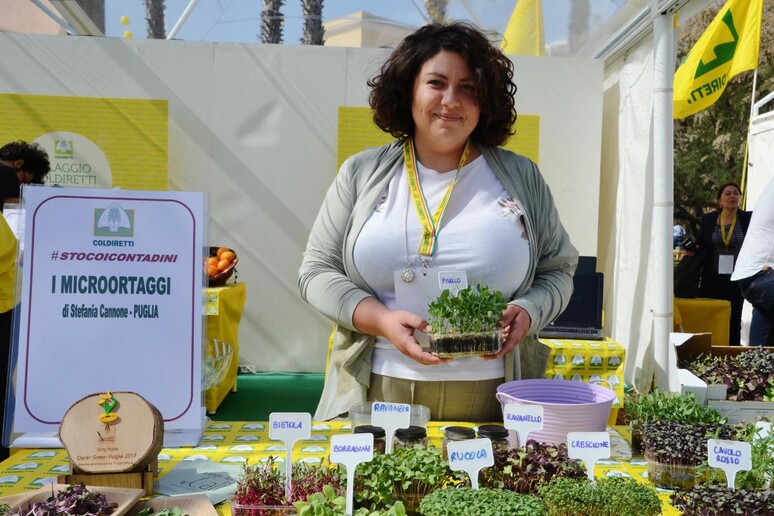Italian researchers have managed to
grow microgreens enriched with iodine and with less potassium to
meet the dietary needs of people with thyroid or kidney
problems.
The breakthrough by experts at the National Research Council's
Institute of Food Production Science (Ispa-Cnr) and Bari's Aldo
Moro University was made thanks to a cultivation technique in
which soil is replaced by a liquid in which nutritional
substances are dissolved.
Tested in collaboration with a company in Puglia, the technique
was described in a paper in the Journal of the Science of Food
and Agriculture.
The team grew four types of vegetable (radish, pea, rocket and
chard) focusing on control of two key nutrients for health:
iodine and potassium.
Iodine is essential for the thyroid and some two billion people
around the world have a deficiency of it, so it is recommended
to take it via fish, milk and egg and the use of iodine-enriched
salt.
However, the increasing popularity of vegan and vegetarian diets
and the need for many people to reduce salt consumption due to
hypertension have led to increasing demand for alternative
sources of iodine.
The researchers' idea was to focus on the enrichment of
microgreens, vegetables to be eaten in their first 15-20 days of
life.
Vegetables with an iodine content of up to 14 times the level of
those in non-fortified microgreens were obtained by using the
nutritional solutions.
Microgreens with 45% lower levels of potassium were also grown
for people who have to limit their consumption of this
micro-nutrient due to chronic kidney diseases.
ALL RIGHTS RESERVED © Copyright ANSA











